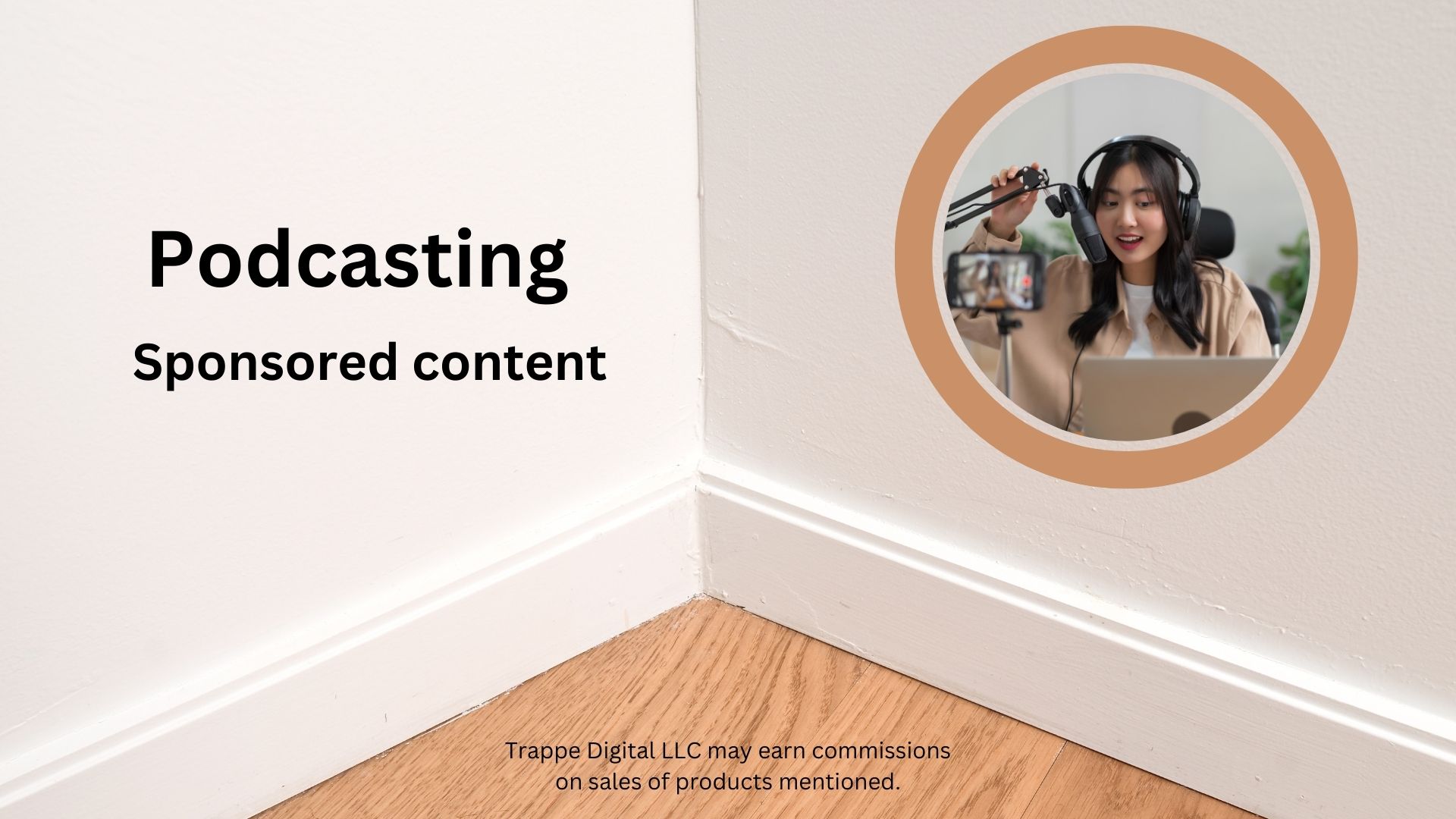Trappe Digital LLC may earn commission from product clicks and purchases. Rest assured, opinions are mine or of the article’s author.
In today’s digital era, having a strong personal brand is a necessity, especially for students who are about to enter the professional world. Podcasting offers a unique avenue to voice your ideas and connect with like-minded individuals globally.
Launching your own podcast as a student can be daunting. With all the academic commitments, you may struggle to find time to record it while handling your coursework. The two things that can help are connecting your podcast to your major and finding a reliable writer who could do my homework for me at any time. Without homework stress, focusing on your student podcast becomes much easier. Let’s tune into how you can transform your insights and stories into a podcast that captivates and educates your audience.
1. Setting the Stage: Technical Essentials
Before you hit record, setting up your space and equipment is crucial. A quiet room with minimal echo and good acoustics can immensely improve audio quality. Here’s a quick checklist:
- Microphone: Invest in a decent microphone; sound quality can make or break your podcast.
- Pop Filter: Reduce those pesky plosive sounds for a smoother listening experience.
- Headphones: Monitor your audio in real-time to ensure clarity.
- Recording Software: Choose user-friendly software that suits your editing needs.
- Acoustic Treatments: Simple foam panels can significantly improve sound quality.
- Stable Internet Connection: Essential for research or remote interviews.
- Backup Storage: Always have a backup for your recordings. Losing an episode can be heart-wrenching.
After setting up, spend time testing and tweaking your setup. A well-prepared recording environment enhances the quality of your podcast and boosts your confidence as a host.
2. Creating Trustworthy Educational Content
In educational podcasting, the credibility of your content is paramount. Your listeners are seeking information that’s not only engaging but also accurate and reliable. Thorough research and fact-checking are essential. Start by consulting reputable sources. This enriches your content and positions you as a knowledgeable and reliable host.
Citing your sources during your podcast adds an extra layer of credibility, allowing your audience to delve deeper into the topics you discuss. Furthermore, transparency is key. When discussing complex or controversial topics, acknowledge the diversity of perspectives and, where applicable, your own biases.
3. Crafting Your Podcast Persona
Your podcast persona is the heart and soul of your show. Be relatable, consistent, and authentic, turning listeners into loyal followers. A student in a literature class, for instance, might adopt a persona that reflects their passion for storytelling, weaving literary critiques with personal anecdotes to create a unique listening experience.
Remember, your persona should evolve with you. As you navigate through your academic journey, allow your podcast to mirror your growth. This doesn’t mean a complete overhaul with each episode but rather subtle shifts that align with your expanding knowledge and experiences.
4. Structuring Your Episodes
An engaging podcast doesn’t happen by accident; it’s the result of meticulous planning and structure. Start by outlining your episodes. This roadmap should include your main points, any guest introductions, and segments like Q&As or book reviews, depending on your theme. For example, a student discussing environmental science might structure episodes around current research, interviews with experts, and actionable tips for sustainable living.
Equally important is your storytelling ability. Your content should flow naturally, guiding your listeners through each segment seamlessly. Make sure you add your personal stories, as they make complex topics more digestible.
5. Interaction and Feedback
Interaction transforms your show from a monologue into a community. Start by encouraging listener feedback. For example, ask for topic suggestions or host Q&A sessions. Platforms like social media or your podcast website can facilitate these interactions, creating a space for your audience to voice their thoughts.
Moreover, constructive feedback is invaluable. It allows you to connect with your audience and understand their needs. Consider setting up surveys or polls to gather this feedback systematically.
6. Marketing Strategies
Once your podcast is live, your student podcast needs a solid marketing plan.
- Social Media: Leverage social media to share snippets and updates.
- SEO: Optimize your podcast description and website for search engines.
- Collaborations: Partner with other podcasters or influencers to tap into new audiences.
- Email Newsletters: Update your subscribers on new episodes or offer exclusive content.
- Engaging Thumbnails: Create eye-catching graphics for each episode to draw attention.
- Community Involvement: Participate in forums or groups related to your podcast’s theme.
- Guest Appearances: Invite guests to your show (industry experts, your professors, etc.) or offer to be a guest yourself on other podcasts.
After your marketing push, remember to analyze the outcomes. Tools like podcast analytics can provide valuable data on listener demographics, episode performance, and engagement levels.
7. Turning Passion into Profit
While monetization might not be your primary goal, it can be a sustainable way to support your podcasting journey. One straightforward approach is through sponsorships. Your niche audience, no matter how small, can be incredibly valuable to the right sponsor.
Additionally, platforms like Patreon offer a way for your most devoted subscribers to support you. Exclusive content, behind-the-scenes access, or early episode releases are just a few perks you can offer your patrons.
Conclusion
Keep your microphone close and your creativity closer. Podcasting can amplify your voice and help you create a personal brand. Make your student podcast a reflection of your unique journey with your genuine thoughts and discoveries. Of course, taking on this project takes time and dedication. The writers from the best assignment writing service can help you with the former while your learning journey is key to making informative and empowering podcast episodes. Don’t hesitate! Grab any topic that resonates with you and record your first episode today!

